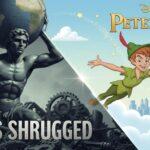
In the modern epoch, the collective consciousness has slowly drifted from the anchor of objective truth, drifting toward a seductive but ultimately destructive substitute: the idol of safety. When safety is elevated from a mere practical outcome to the highest moral virtue, it ceases to be a condition of well-being and becomes a jealous god. This idol demands a specific form of worship, and its liturgy is the systematic dismantling […] Read more »













